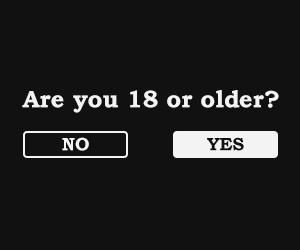THE SENATE CANNOT BE COMPELLED BY MANDAMUS TO PROCEED WITH AN IMPEACHMENT TRIAL
Author: 79467545 • 13 views • 2025-02-15 21:52:25
THE SENATE CANNOT BE COMPELLED BY MANDAMUS TO PROCEED WITH AN IMPEACHMENT TRIAL
In the context of the Philippines' legal framework, the Senate cannot be compelled by a writ of mandamus to proceed with impeachment proceedings. The 1987 Constitution grants the Senate the exclusive authority to try and decide all cases of impeachment, as stated in Article XI, Section 3(6):
"The Senate shall have the sole power to try and decide all cases of impeachment."
This provision underscores the separation of powers among the branches of government, entrusting the Senate with discretionary authority over impeachment trials. Given this exclusive mandate, the judiciary typically refrains from intervening in impeachment processes, recognizing them as political questions beyond judicial review.
WHY MANDAMUS CANNOT COMPEL THE SENATE TO ACT ON IMPEACHMENT
A writ of mandamus is an extraordinary remedy that compels a public official or body to perform a ministerial dutyrequired by law. However, for mandamus to be granted, the duty must be:
1. Clearly enjoined by law (i.e., the law expressly requires the official or body to act in a certain way).
2. Ministerial and not discretionary (i.e., there is no room for judgment or policy-making).
Since impeachment proceedings involve discretionary powers of the Senate, not mere ministerial duties, mandamus cannot be used to compel the Senate to act on an impeachment case. The decision to proceed with impeachment trials involves policy considerations, deliberation, and interpretation of the sufficiency of the charges—functions that are inherently discretionary.
RECENT PETITION AND THE INTERPRETATION OF 'FORTHWITH'
A petition has been filed before the Supreme Court seeking to compel the Senate to immediately convene as an impeachment court for Vice President Sara Duterte, arguing that the Constitution mandates the Senate to act "forthwith" upon receipt of the Articles of Impeachment. However, this interpretation is flawed.
The term “forthwith” does not mean instantaneous or automatic action, but rather without unreasonable delay, considering practical constraints. The Senate, as an independent body, retains discretion on when and how to conduct the trial. Senate President Francis Escudero has clarified that the trial will proceed after the President’s State of the Nation Address in July, aligning with the legislative calendar. This timeline is well within the Senate’s constitutional prerogative.
Thus, the petition to compel the Senate through mandamus is legally untenable. The Senate’s power to try impeachment cases is exclusive and discretionary, and courts cannot dictate how and when it exercises this function. Forcing the Senate to act on impeachment based on an arbitrary definition of “forthwith” undermines the separation of powers and judicial restraint in political questions.
JURISPRUDENCE ON THE NON-INTERFERENCE OF COURTS IN IMPEACHMENT MATTERS
In the landmark case of Francisco, Jr. v. House of Representatives, G.R. No. 160261, November 10, 2003, the Supreme Court emphasized the political nature of impeachment proceedings and the limitations on judicial intervention. The Court acknowledged that impeachment is primarily a political process vested in the legislative branch, and as such, courts should exercise restraint in interfering with its conduct.
The Supreme Court has consistently ruled that impeachment proceedings are beyond the scope of judicial review, except in cases of grave abuse of discretion amounting to lack or excess of jurisdiction. However, compelling the Senate to act on impeachment through mandamus does not fall within this exception, as the discretion to proceed or not is an exclusive legislative prerogative.
Furthermore, the Rules of Procedure in Impeachment Proceedings adopted by the House of Representatives outline the process and reinforce the legislative branch's autonomy in handling impeachment matters. These rules reaffirm that impeachment is a political process entrusted to Congress and not subject to judicial compulsion.
THE DOCTRINE OF POLITICAL QUESTION AND SEPARATION OF POWERS
The doctrine of political question bars courts from interfering in matters exclusively entrusted to Congress, including impeachment. In Francisco, Jr. v. House of Representatives, G.R. No. 160261, November 10, 2003, the Supreme Court ruled that impeachment is a political process beyond judicial review, except in cases of grave abuse of discretion.
In Lozano v. Nograles, G.R. No. 187883, June 16, 2009, the Court further emphasized that judicial power is limited to actual cases or controversies, reinforcing that courts should not intervene in purely political matters.
Since impeachment is a discretionary function of Congress, the judiciary cannot compel the Senate to act on an impeachment case through mandamus, as this would violate the separation of powers.
By Atty. Phil Juris
To share this notes please copy this URL and send it to your friends
Important :
This text must comply to our Terms and Conditions otherwise it will be removed from our Server.





